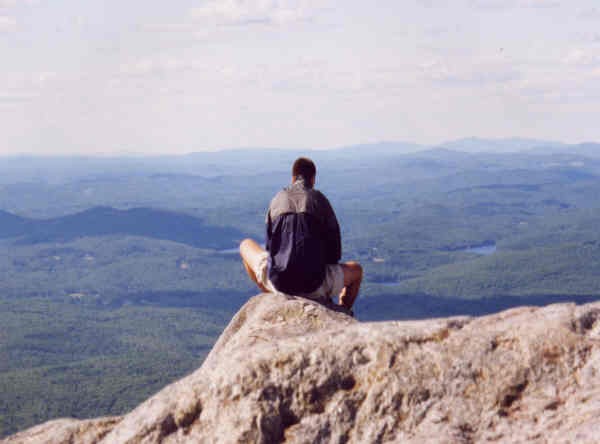|

it's more than just elections
Copyright 2007 International Herald Tribune
The International Herald Tribune
June 7, 2007 Thursday
SECTION: NEWS; Pg. 2
LENGTH: 1062 words
HEADLINE: Elections are tarnished as a symbol of progress;
Letter From the Middle East
BYLINE: Michael Slackman - The New York Times Media Group
DATELINE: CAIRO
BODY:
This is election season in the Middle East. Syria just held presidential and
parliamentary elections. Algeria held parliamentary elections. Egyptians will be
asked to vote this month on a new upper house of Parliament. There will soon be
elections in Jordan, Morocco and Oman, followed by elections in Qatar, too.
So is democracy suddenly taking root in the strongman's last regional
stronghold? The general consensus among democracy advocates, diplomats and
citizens interviewed around the region is that the reverse is true. Elections,
it appears, have become a tool of authoritarian leaders to claim legitimacy.
''There is a state of depression and lack of trust, or faith, among the Arab
masses in the regimes and little belief that these elections can lead to the
change aspired to,'' said Jaffar al-Shayeb, a member of the Qatif municipal
council in Saudi Arabia, an advisory body that lacks legislative authority.
The problem is not just what this means for people forced to live under
authoritarian rule, but what it does to the broader perception of democracy in
Middle East countries like Egypt and Syria that hold elections but also allow
for a ruling class to hold a monopoly of power, limit freedom of speech and
assembly and deny their citizens due process.
''There isn't any democratic regime in the whole world,'' said Abbas Mroue,
29, as he sat in a coffee shop with his friends in Beirut one day recently
chatting about politics and governance.
''Yes,'' replied his friend, Hussein Jaffal, 31, ''there is democracy, but
there are no freedoms.'' It is that view that seems to be spreading, one that
has confused the process of elections with the principles of democracy.
It is a conclusion that may well have roots in Washington, where officials
have frequently pointed to elections as a barometer of progress, even though the
voting may actually contribute to tarnishing the concept of democracy, diplomats
and democracy advocates in the region said.
Iraq, where a freely elected government has been paralyzed by sectarian
disputes, has stood as a particularly damaging example.
''Democracy itself has lost credibility as a way of government,'' said a
Western diplomat based in Algiers, speaking on the condition of anonymity,
following standard diplomatic protocol. ''I think the Iraqi experiment, and the
purple finger, didn't help anything. People now say this democracy is not the
answer to anything.''
The purple finger had become a symbol of pride in what was hoped to be Iraq's
nascent democracy. Millions turned out to cast their ballots and dip a finger in
ink to prevent double voting in the first post-Saddam Hussein election.
Rightly or wrongly, the purple finger has become a symbol of failure.
''I voted because I was so excited, finally I can pick the candidate I
want,'' said Hussein Marzouk, an Iraqi refugee now living in Lebanon. ''But then
I found out that I risked my life for nothing. It turned to be a phony game the
Americans brought with them that was full of fraud. So why would I vote again?''
For decades there have been less-than-democratic elections in the Middle
East, where ruling parties control access to the ballot for candidates and
voters, and also control ballot counting.
In Egypt's parliamentary elections last year, witnesses reported that the
police fired live ammunition at voters, killing some to keep them from casting
ballots for candidates aligned with the Muslim Brotherhood. And recently, as
Egypt gears up for elections to the Shoura Council, the upper house of
Parliament, security agents have imprisoned 80 members of the Brotherhood, which
while an officially banned organization is also the only viable political
opposition in the country.
In Syria, the presidential election was a referendum on one candidate,
President Bashar al-Assad, in a state that has sentenced democracy advocates to
several years in prison for signing a petition asking for political reforms and
recently handed down a 12-year sentence to one man for membership in the Muslim
Brotherhood.
''The system is rigged to bring to power people who are already in power,''
said Daoud Kuttab, director of the Institute of Modern Media at Al Quds
University in Ramallah. ''That is what explains low voter turnout and why
elections are turning people away.''
With the outcome almost always certain, and the manipulation so evident, why
do leaders in the region even bother? From Syria to Bahrain, elections have
helped to bleed off some internal and external pressure for change without
making any substantial alternation to the power structure, opposition political
leaders and diplomats said.
Said Boughadja, a member of the Algerian Parliament and an official in the
governing party, said such complaints are unfair, noting that voter turnout is
low all over the world, including in the West. An independent Algerian
vote-monitoring commission said there had been widespread ballot box stuffing in
the recent parliamentary election, which Boughadja dismissed, saying that if his
party or its supporters had stuffed ballot boxes, turnout would have exceeded 50
percent. Instead it was 36.5 percent, 10 points lower than in the parliamentary
elections in 2002.
But Boughadja also did not hide his bigger complaint about democracy: that
with truly free elections, there is no guarantee who will win. In the early
1990s, Algeria's military canceled elections when a moderate Islamic party
appeared poised to take control of Parliament. That decision sparked a nearly
decade-long civil war that claimed at least 100,000 lives.
''The Islamist trend,'' he said, ''emerged through the democratic process.''
That is a reality that has also become evident to democracy promoters in
Washington, which may provide one explanation for why there is little discussion
these days of pushing for full-blown free elections around the region. But
political and social scientists in Cairo said that view once again missed the
point, emphasizing process over substance.
''We should insist on wider concepts of democracy, on democratic values,''
said Abdel Nasser Djabi, a professor of sociology at the University of Algiers
who said elections were increasingly viewed as a ''technique'' for misleading
people. ''There is a real danger this may lead to the rejection of concepts of
democracy.''
LOAD-DATE: June 7, 2007
|

